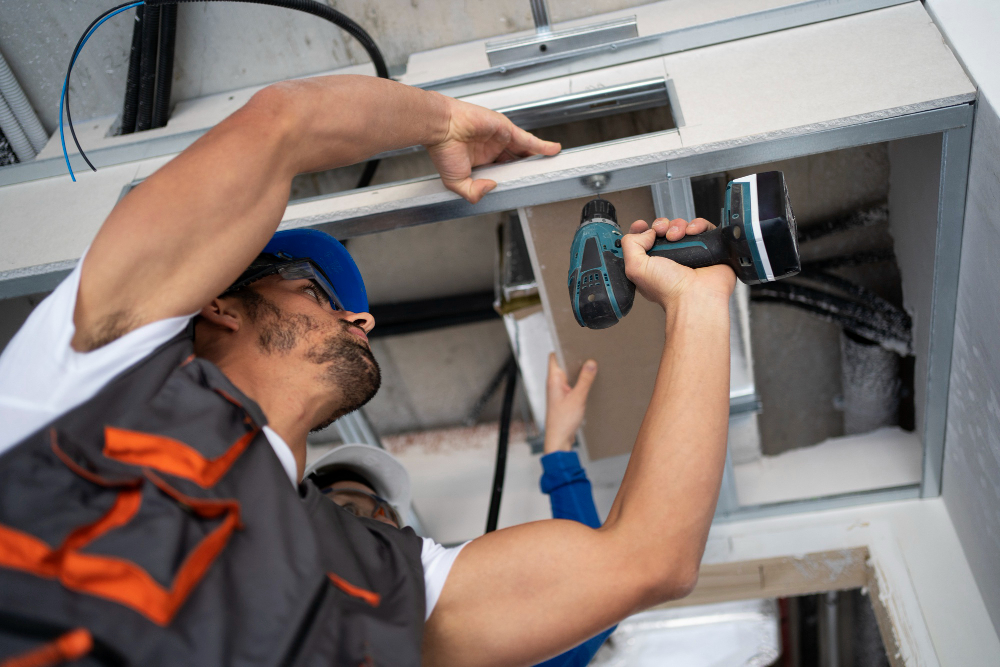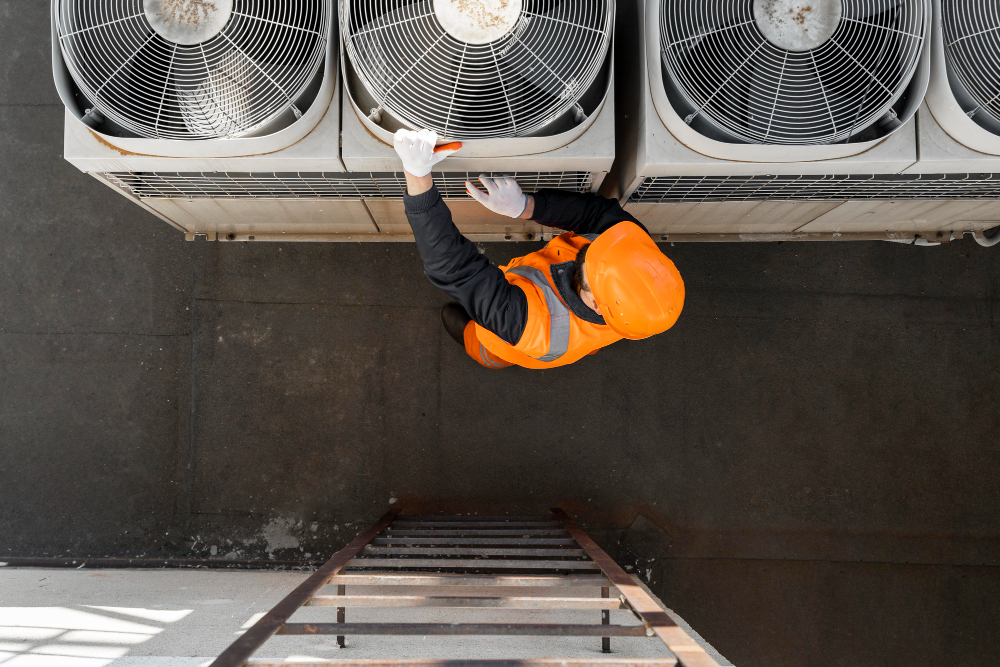Regular air conditioning (AC) maintenance is essential to ensure the efficiency, longevity, and reliability of your cooling system. Neglecting AC maintenance can lead to higher energy bills, decreased comfort, and costly repairs or replacements.
Here are the importance of regular AC maintenance:
Improved Efficiency and Performance :
An AC system is designed to cool your home or office efficiently. Over time, dust, dirt, and other debris accumulate on various parts of the system, such as the coils, filters, and condenser. If these parts are not cleaned regularly, the system will struggle to cool your space, reducing its overall efficiency. Dirty filters restrict airflow, making the system work harder to circulate air. Regular filter cleaning or replacement ensures the AC operates smoothly.
Over time, the evaporator and condenser coils can collect dirt, which can reduce the system's efficiency. Cleaning the coils ensures they absorb and release heat effectively.
Extended Lifespan of the AC Unit:
Just like any other piece of machinery, regular maintenance extends the lifespan of an AC unit. On average, an air conditioner can last between 10 to 15 years, but without proper care, it might need replacement much sooner. Routine maintenance, such as lubrication of moving parts, checking for leaks, and tightening electrical components, can significantly prolong the life of your AC.
There is a need to avoid major failures that is ,regular checks allow technicians to identify minor issues before they escalate into costly breakdowns or system failures.
Avoid the Need for Early Replacement,timely repairs and part replacements can help avoid having to replace the entire system earlier than expected.

Energy Savings:
An AC that isn't running efficiently consumes more energy to maintain the desired temperature. For instance, a clogged air filter or dirty coils can cause the AC unit to consume more electricity as it works harder to cool your space. Regular maintenance ensures that the system operates at peak efficiency, which translates to lower energy bills. A clean and well-maintained system requires less power to cool your home, making it more energy-efficient.
Prevention of Costly Repairs:
Many AC problems are caused by small issues that, if not addressed, can turn into major malfunctions. Regular maintenance allows technicians to detect and fix minor problems, such as refrigerant leaks, faulty thermostats, or worn-out components, before they cause system failure.There is always a need for early problem detection, A technician can spot warning signs of issues that may lead to breakdowns, such as unusual noises, poor airflow, or uneven cooling.
Small issues are typically much cheaper to repair than larger, more complicated problems that occur due to neglect.
Better Indoor Air Quality:
Air quality is a significant concern for many households, especially for those with allergies or respiratory issues. Regular maintenance, particularly changing or cleaning air filters, ensures that the air circulating in your home remains free of dust, dirt, and allergens.Air filters and coils remove pollutants from the air, helping to maintain a healthier environment inside your home.Regular maintenance can help prevent the growth of mold, mildew, or bacteria within the system, which can lead to poor air quality and health issues.
Enhanced System Reliability:
An air conditioning system that undergoes regular maintenance is less likely to fail when you need it most,during a heatwave or peak summer temperatures. Knowing your system has been well-maintained provides peace of mind, particularly during the warmer months when AC use is high.Regular maintenance keeps the system operating smoothly, reducing the likelihood of unexpected breakdowns.
Maintenance before the hot season helps ensure that your system is in its best shape when you need it the most.
Optimizing Refrigerant Levels:
Proper refrigerant levels are crucial for your AC to cool your space effectively. Too little or too much refrigerant can negatively affect your system's performance and even lead to compressor failure. A technician will check refrigerant levels during routine maintenance and adjust them as needed to maintain optimal cooling. Regular inspections can identify refrigerant leaks early, preventing system damage and ensuring your AC is running at full capacity.
A simple guide on how to maintain your AC

Clean or replace your filter monthly:
Dirty filters can cause AC to work harder, reducing efficiency and air quality.
Replace or clean them every 1-3 months, depending on usage .
Inspect Ductwork for leaks:
Leaky ducts can waste a lot of cool air,it should be inspected and sealed by a professional to improve efficiency.
Check the Condensate drain:
There's a need to make sure the drain is clear to avoid water damage and mold growth. If it's clogged, use wet/dry vacuum to clear it.
Test the thermostat:
Check if the thermostat is working properly and is calibrated correctly, if it's not reading temperature accurately, consider replacing it.
Schedule professional inspections:
It's essential to have a professional technician to perform a check-up.